lants{SECTION_MENU}
Science
Curriculum Intent
“A high-quality science education provides the foundations for understanding the world through the specific disciplines of biology, chemistry and physics. Science has changed our lives and is vital to the world’s future prosperity. Through building up a body of key foundational knowledge and concepts, pupils should be encouraged to develop a sense of excitement and curiosity about natural phenomena. They should be encouraged to understand how science can be used to explain what is occurring, predict how things will behave, and analyse causes.”
Primary National Curriculum for Science 2014
At Gateway Academy, we want to prepare our children for life in an increasingly scientific world. We want our children to foster concern and care for our environment and help them develop a growing understanding of scientific ideas.
We want children to:
- Have a curiosity about the world around them and to enable them to answer scientific questions about their world
- Be able to ask and answer questions and to solve problems so they can begin to understand the uses and implications of science today, and for the future
- Develop scientific knowledge and understanding through the disciplines of biology, chemistry and physics
- Develop the skills of investigation, including observing, measuring, predicting, explaining, communicating and evaluating
- Develop the use of Computing in investigating and recording
- Develop the use of scientific language and enrich their vocabulary to support their understanding of the world around them
The Curriculum
Early Years Foundation Stage (EYFS)
In the EYFS, science is included within the Understanding the World area of learning. As with other learning in Reception, children will mainly learn about science through games and play – which objects float and sink during water play, for example. Activities such as these will help children to develop important skills such as observation, prediction and critical thinking.
Key Stage 1 (Years 1 and 2) and Key Stage 2 (Years 3 to 6)
The content of science teaching and learning is set out in the 2014 National Curriculum for primary schools in England. Within this, certain topics and areas are repeated across year groups, meaning that children may revisit a particular topic in each year of primary school but with increasing difficulty and with a different focus each time.
Alongside these areas runs the Working Scientifically element. This focuses on the skills the children need to become accurate, careful and confident practical scientists.
The curriculum overview for the school is as follows:
|
|
Term 1 |
Term 2 |
Term 3 |
Term 4 |
Term 5 |
Term 6 |
|
Year 1 |
Everyday materials |
Seasonal changes: Autumn and Winter |
Amazing Animals (a) |
Amazing Animals (b) |
Seasonal changes: Spring and Summer |
Plants |
|
Year 2 |
Uses of everyday materials
|
Animals: Needs for Survival Habitats |
Habitats
|
Habitats |
Protecting our environment
|
Plants and Growth |
|
Year 3 |
Light and Shadows
|
|
Forces and magnets |
Skeletons, muscles and nutrition |
Rock and Fossils
|
Plants – need for survival |
|
Year 4 |
Teeth
|
States of matter
|
Living Things and Environment
|
Sound
|
Electricity |
|
|
Year 5 |
Forces
|
Earth and space |
Properties and changes of materials (a)
|
Properties and changes of materials (b) |
Life Cycle |
Growing Older |
|
Year 6 |
Light
|
Classification
|
Evolution and inheritance
|
Electricity |
|
Circulatory System |
Gateway Academy awarded Primary Science Quality Mark
Following an extensive external assessment, Gateway was awarded the prestigious Primary Science Quality Award. The award recognises the excellent Science work that takes place in school. This academic year 2023-24 we will be working hard to renew this.
How Parents Can Help
1. Be interested
Find out their termly topics and take an interest — find relevant books in the library or bookshop. Have interesting conversations where you are both learning at the same time.
2. Take a trip
Take a trip to a science museum, a zoo or an aquarium. These don’t necessarily need to be completely related to what they are learning about at school. Any visit can help their curiosity and engagement with science generally.
3. Make it personal
Find out about famous scientists and research unique and exciting inventions up to and including the present day. Who knows, you may have the next Stephen Hawking or Marie Curie at home.
4. Get hands-on
Look up fun, practical science experiments you can do at home with everyday objects.
For example:
- Ask ‘What happens when you mix food colouring in milk?’ Then add washing up liquid and watch what happens.
- Why not try making your own mini exploding volcano? Just add bicarbonate of soda, food colouring, washing up liquid and vinegar. Then stand back and watch the eruption!
- Cooking is also a great opportunity to mix ingredients, add heat and examine changing states.
- Try exploring changing states with ice and water to begin to see those changes that can be reversed and those that can’t.
- A real favourite would have to be ‘gloop’ — use water and cornflour (add food colouring too if needed) to explore solids and liquids. Just be prepared to get messy!
Anything where they can be hands-on and see the science happen in front of their eyes is guaranteed to be get them interested.
Further Support And Useful Weblinks
- The National Curriculum for science
- for video clips and activities
- The Science Museum for information, games etc.
- The Children’s University of Manchester Science pages
- The Royal Institute’s annual Christmas lectures make science real for children and are available online, along with lots of other educational goodies
- National Geographic Kids
 Gateway Academy
Gateway Academy